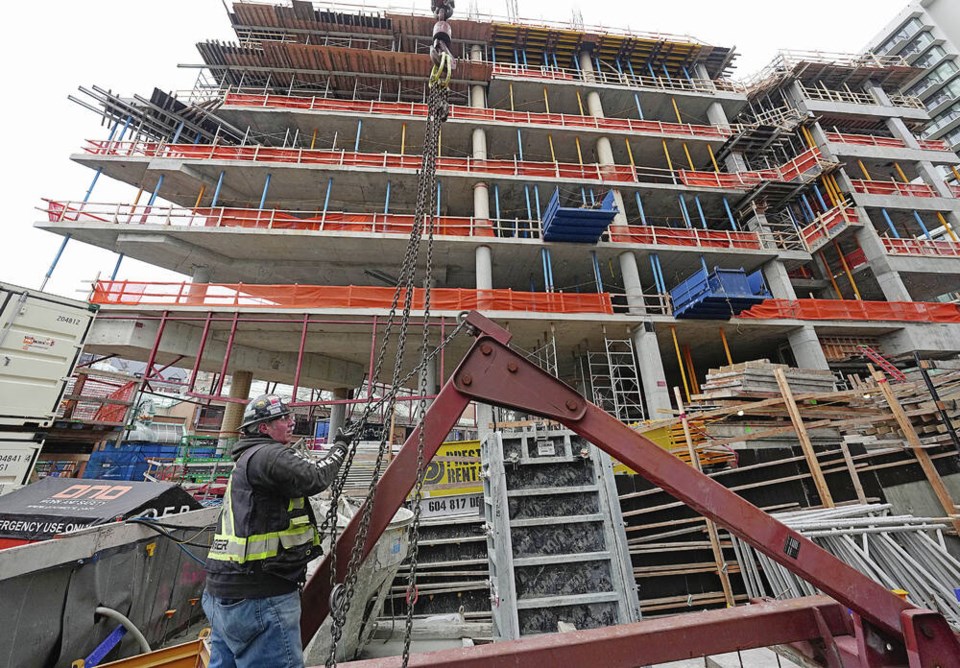The head of the Vancouver Island Construction Association says ongoing uncertainty about U.S. tariffs is bad news for the industry, despite news Monday that they’re now on hold for 30 days.
“I don’t think anyone is relieved — it just gives a bit of a reprieve right now so it helps us understand where we are,” chief executive Rory Kumala said Monday.
In a sector where projects are measured in months and years and in tens and hundreds of millions of dollars, “I think it’s going to slow things down considerably,” Kumala said.
Contractors will have to think seriously about how to approach bidding, he said. “I think prices are going to hyper-inflate if they have to consider unknown tariffs coming in at an unknown time from an unknown direction.
“It’s just more uncertainty and that’s never good for anybody.”
Kumala is recommending that sub-trades and contractors include provisions in contracts to protect themselves in case of tariffs, duties, tax changes — anything companies can’t control.
He urged members to lock in base prices now and have a contract that could be opened up if tariffs come into effect.
Prime Minister Justin Trudeau announced Monday afternoon after meeting with U.S. President Donald Trump that pending tariffs had been paused for at least 30 days.
Casey Edge, executive director of the Victoria Residential Builders Association, hopes that the temporary reprieve will provide time for the parties to negotiate.
Edge said that home builders buy a lot of gypsum, glass and other components for housing construction from the U.S., which means countervailing tariffs would increase the cost of housing.
Homebuilders are already struggling to make the bottom line work for new builds, he said, noting housing starts dropped 16 per cent in Greater Victoria last year.
“We’ll see how it unfolds this year. But it’s unlikely that we’re going to be meeting those [provincial housing] targets given the latest tariffs issue.”
Sourcing locally is a more long-term solution, but that will require investments in local manufacturing, said Edge, who is urging all levels of government to work together to see it happen.
Byron Chard of Vancouver-based Chard Development, a major developer in Victoria, said he was relieved about the pause in tariffs because it will give his company more time to analyze its supply chain.
He said the company already has a Canada-first approach when it comes to materials.
“We’re looking at: ‘How do we make moves on the things that we control? And how can we continue to support and collaborate with our sub-trades?”
The company has been working with its appliance distributors to ensure it can obtain what it needs, and has been able to source appliances from South Korea, he said.
Chard’s projects include a 480-unit purpose-built rental building on Yates Street that’s underway and plans for a 500- unit rental project at the corner of Douglas Street and Caledonia Avenue.
The priority is to “understand the supply chain” — where all of the company’s materials are being sourced and manufactured and how they get into Canada, if applicable, he said.
>>> To comment on this article, write a letter to the editor: [email protected]



